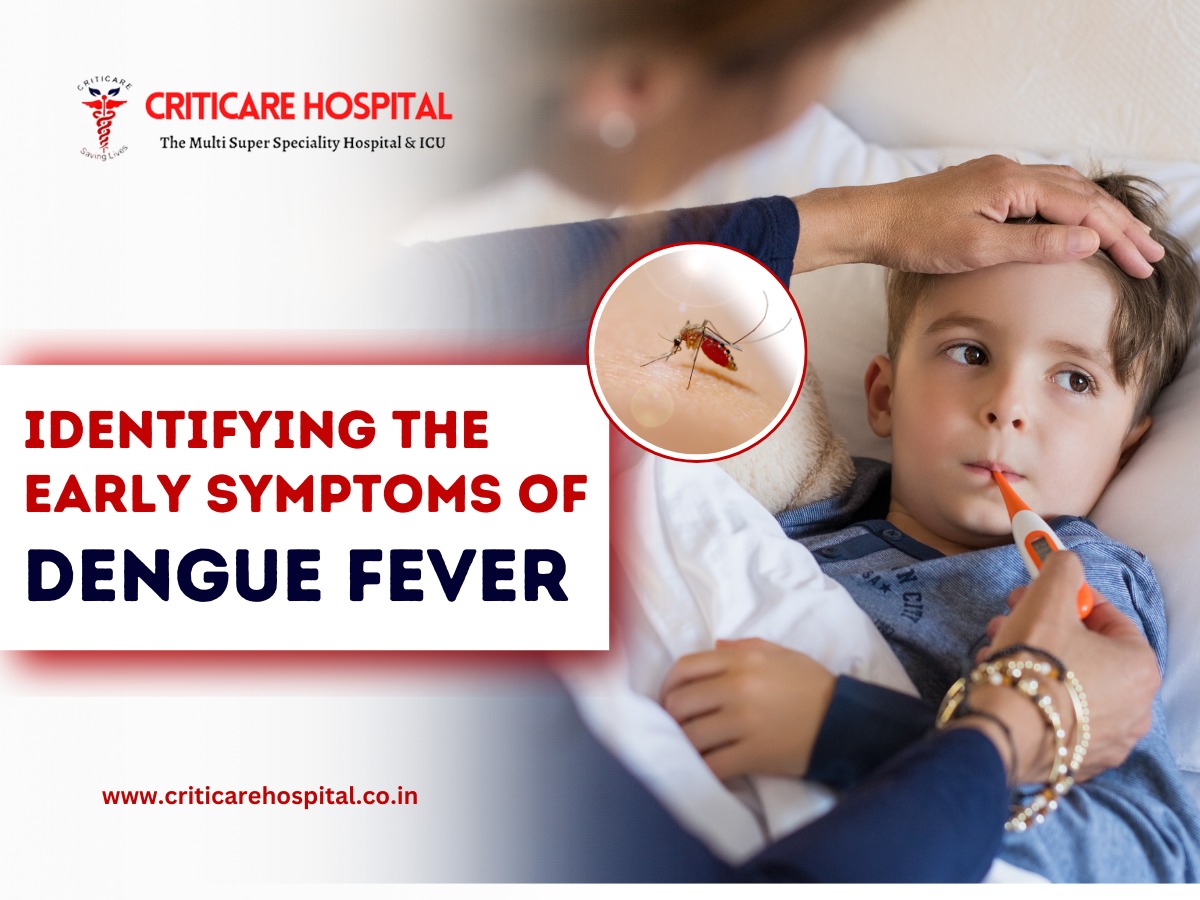When the season changes, parents go on high alert to keep their children safe from all types of seasonal illnesses. One of the most common but dangerous conditions is dengue which occurs mostly in the months from June to August.
Children may not understand the impact and seriousness of this illness, but parents need to make sure that within these peak months, their child is protected from dengue
Parents having infants need to be more attentive and careful because infants are not able to express their discomfort. You need to figure out what is causing discomfort to your child.
Dengue is usually confused with flue, but it is different from flue.
In this blog, you will learn about dengue and what steps you can take to manage and control its effects on your children and infants.
What is Dengue Fever?
Dengue fever is a mosquito-borne viral disease caused by dengue virus, which is prevalent in tropical and subtropical regions around the world. It is transferred primarily by the bite of the Aedes aegypti mosquito, known for its distinct black and white markings.
What causes dengue fever?
Dengue fever is caused by the bite of an infected Aedes mosquito. These mosquitoes stay near and around human habitation, where they lay eggs in stagnant water left in containers, flowerpots, etc.
What are the Early Symptoms of Dengue Fever?
Early symptoms of dengue fever are mentioned below. If you notice any of these symptoms in your child or impact it is suggested to visit the best emergency hospital in Lucknow. So that your child can get a better treatment.
- High Fever: One of the most common and noticeable symptoms of dengue is getting a high fever.
- Sudden Onset: The fever often begins quickly and then starts escalating without any warning signal or discomfort at the beginning.
- Temperature Range: Since the fever is usually high in dengue, hence the temperature can reach up to 104°F (40°C) and may last for several days.
- Severe Headache: Because of high fever and weakness, individuals may experience severe headaches which is another common symptom of dengue.
- Location and Intensity: The headache typically occurs in the forehead region and can be intense, often making it difficult to concentrate or perform any activity.
- Pain Behind the Eyes: Individuals may experience pain behind the eyes, which is also a common cause of dengue fever.
- Description in duration: The pain behind the eyes is usually felt in sockets and can worsen by eye moments and it can last up to several days.
- Joint and Muscle pain: Dengue is also known as breakbone fever because it causes severe joint pain and muscle pain.
- Commonly Affected Areas: Muscle pain and joint pain are felt in areas like knees, elbows, and other large joints, as well as muscles throughout the body.
- Nausea and Vomiting: This symptom is also seen in many patients suffering from dengue fever. If not managed properly it may lead to dehydration.
- Fatigue: Since the body becomes very weak during dengue hence individual may feel fatigue.
- Skin rash: Having skin rashes can be also counted as a common symptom of dengue fever. The rash typically appears a few days after the fever begins. It may start on the face and spread to the body. It appears as small red dots or a flushed appearance.
What preventive measures can be taken to prevent dengue fever?
According to the doctors of the best private hospital in Lucknow, it is important to detect dengue fever at its early stages so that its diagnosis and treatment can be done. Early detection can save your child from further abnormalities.
But, it is always said that prevention is better than cure that’s why it would be better to focus on preventing dengue from, occurring rather than curing it.
- Preventing Mosquito Bites: Preventing mosquito bites is the most effective way to avoid dengue fever.
- Wear full-sleeved clothes: Although it is summer wearing full-sleeved shirts long pants and socks can reduce skin exposure to a mosquito bite
- Use of repellents: Make a habit of applying mosquito repellants before going outside, especially in the early mornings or evenings.
- Clean stagnant water: Do not let water collect in small pits, pots, or flower pots, as they are the places where mosquitoes lay eggs and stay.
- Mosquito net and screens: You can give additional protection to your home by installing screens on windows and doors.
In conclusion
The peak time of dengue fever has started, and the parents need to take care of their child and infant while they go out to play since many children have their summer vacations going on, because of which children usually stay outside for longs. With the help of the preventive measures given above, they can keep their children safe from dengue.
Resources
https://my.clevelandclinic.org/health/diseases/17753-dengue-fever
https://www.mayoclinic.org/diseases-conditions/dengue-fever/symptoms-causes/syc-20353078https://www.dettol.co.in/common-infections/illnesses/ways-to-protect-your-child-from-dengue-fever/




